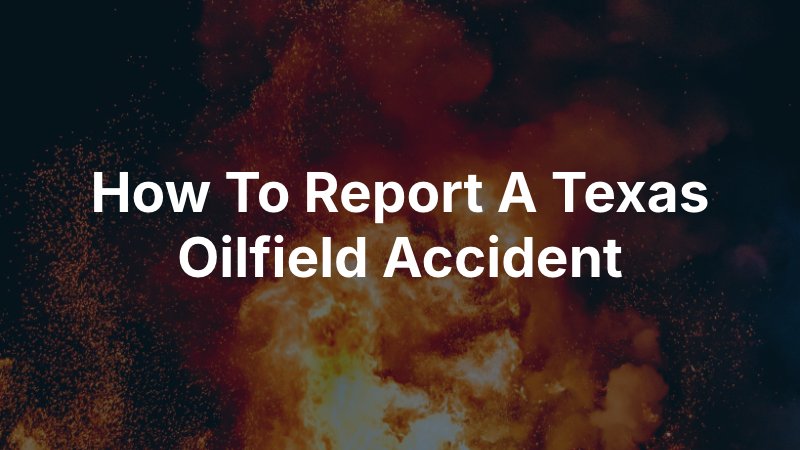Oilfield accidents in Texas are not as uncommon as you might think, but reporting an incident can bring a bunch of questions. If you or somebody you love has been involved with or has knowledge of a serious oil field accident, you may need to speak to an oilfield accident attorney to understand your next steps. If there are any injuries associated with the oil field accident, these must be evaluated and treated, not only for the well-being of those harmed but also for the next steps in any potential injury claim.

The safety and health of everyone involved should be the first priority after an oilfield accident. If anyone is injured:
Prompt medical care is not only necessary for health and safety but also creates a record that can be used in workers’ comp or personal injury cases.
Texas law requires employees to report workplace injuries to their employer as soon as possible. Failing to report the oilfield incident promptly may jeopardize a worker’s ability to file for workers’ compensation.
Depending on the severity of the accident, it may need to be reported to OSHA. Employers are responsible for reporting specific incidents to OSHA within certain timeframes:
If you believe your employer has not fulfilled their OSHA reporting obligations, you can contact OSHA directly to report the incident.
If it is safe to do so, collect evidence from the accident site. This can help establish the cause of the accident and determine liability. Evidence to gather includes:
Texas does not require private employers to carry workers’ compensation insurance, but many oilfield companies do. If your employer has workers’ compensation coverage:
If your employer does not carry workers’ compensation insurance, you may need to explore other legal options, such as filing a personal injury lawsuit.
Oilfield accidents are complex and often involve multiple parties, including employers, contractors, and equipment manufacturers. An experienced oilfield accident attorney can:
An attorney can also protect you from retaliation if your employer disputes your claim or takes adverse action after you report the incident.
Properly reporting an oilfield accident is critical for several reasons:
If you or a loved one has been involved in an oilfield accident, it is essential to take the proper steps to report the incident and secure your rights. At The Doan Law Firm, we have extensive experience handling oilfield accident cases and advocating for injured workers.
Visit our contact page or call us to discuss your case. Let us help you through this challenging time and work to secure the compensation you deserve.